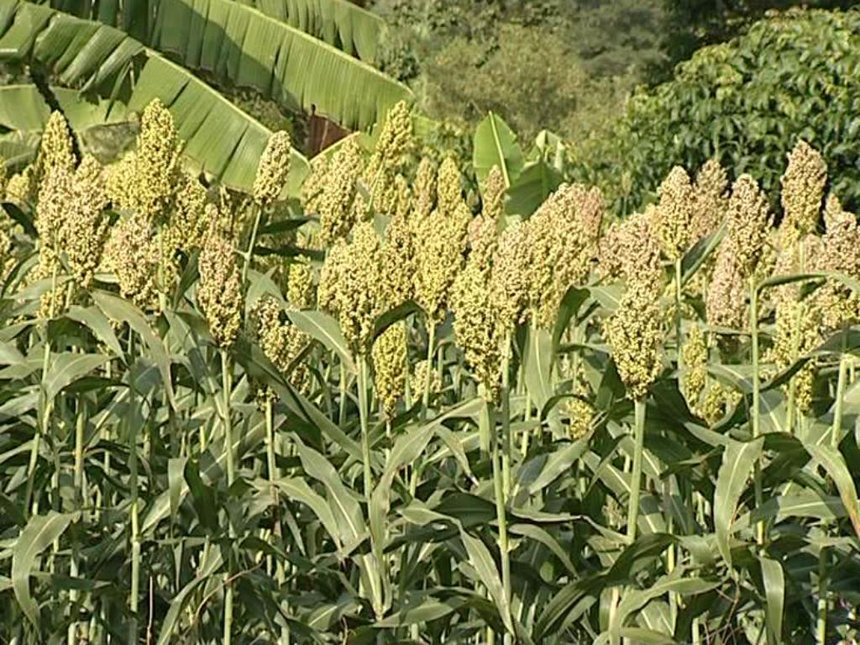A Meru County farmer Germano mugambi who started sorghum farming in 2013 is now earning close to Sh250,000 from the crop after finding market in Shalem investments, a private company dealing with grains.
Before this, Germano had no other dependable source of income yet he had to support his children and aging mother. He started by cultivating two acres of the crop. The following season he planted five acres of sorghum from which he harvested 6,750 kg. This earned him an income of Sh175,000. He is one of the farmers from Meru County who benefited from training on how to double sorghum production.
The training was conducted by a consortium supported by the Kenya Agricultural Productivity Programme (KAPP) to improve production and income among smallholder sorghum farmers from 2013 to 2015.
Related content
15,000 sorghum and bean farmers find market power in collective groups
Government asks farmers to grow millet, sorghum, cassava and amaranth for blending with maize flour
EABL pays Sh1.5bn to its 60,000 small-scale sorghum farmers in the region

White sorghum
After the training, Germano planted another five acres of sorghum from which he estimates to harvest 10,000 kg of sorghum and earn an income of Sh250,000. He is also an agent, buying and bulking sorghum grain which he sells to Shalem Investments, a private company. In 2013, he mobilized up to 100 farmers who produced and sold 420,000 kg of sorghum worth Sh10.5m.
The sorghum was sold to Shalem Investments. Being one of the 100 farmers he used his share of the income to complete building the permanent stone house. This enabled him to move from the semi-permanent house he has been living in with his family for many years. Also, he purchased two bulls which he uses for ploughing. Germano plans to start large scale farming by leasing land.
According to the 2018 Economic Survey report, Kenya produced 144,000 metric tonnes of sorghum in 2017 which was not enough for domestic consumption, this prompted importation of 133,000 metric tonnes to cover the deficit.
In Kenya, sorghum is one of the traditional cereal crops with a wide agro-ecological adaptation and great potential to improve food and nutrition security, and to enhance industrial growth. A baseline survey conducted in Nakuru and Siaya Counties by the ministry of agriculture in 2012, found out that sorghum production and uptake is low. Despite the numerous benefits that sorghum possesses and research efforts made in the past, its adoption, production and utilization as a staple and commercial crop in Kenya remains low.
This is largely due to low yield, lack of specific varieties for the diverse products, inadequate product promotion, poor marketing linkages and unfavourable policy environment. At the farm level, sorghum production is limited by poor agronomic practices, diseases and pests, un-developed seed supply systems and poor marketing channels. Besides, there has been limited involvement of women, who are the majority in agricultural production, in decision-making on production options.
















Comments powered by CComment